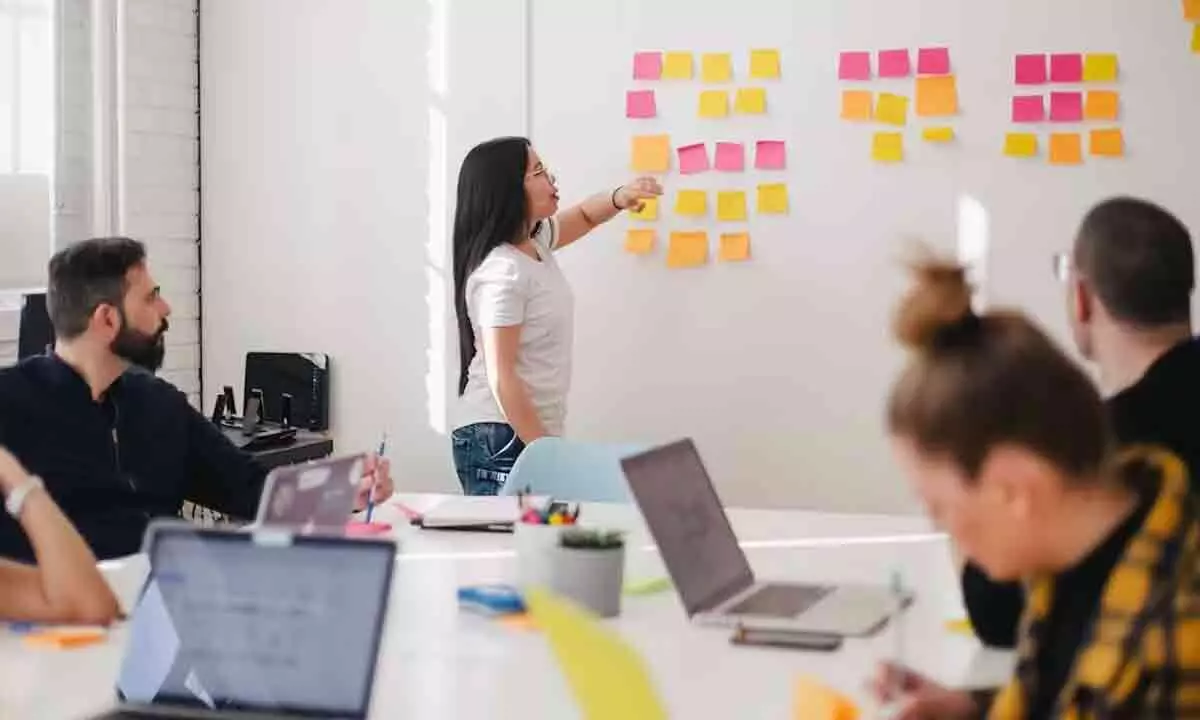Improve your communication skills

Effective communication skills can help you convey your ideas, build rapport with others, and achieve your goals.
Effective communication skills can help you convey your ideas, build rapport with others, and achieve your goals.
Body language awareness
Body language plays a crucial role in communication, influencing how your message is perceived by others. Pay attention to your body language, including your posture, facial expressions, gestures, and eye contact, as these nonverbal cues can convey confidence, openness, and sincerity. Practice maintaining an open and relaxed posture, making eye contact, and using gestures to enhance your message.
Empathy and understanding
Empathy is the ability to understand and share the feelings of others, which is essential for building rapport and fostering positive relationships. Practice empathy by actively listening to others, acknowledging their emotions, and validating their experiences. Show genuine interest and concern for the well-being of others, and strive to see situations from their perspective.
Practice effective questioning
Asking thoughtful and open-ended questions can facilitate meaningful conversations and help you gather information, clarify understanding, and uncover insights. Practice asking questions that encourage dialogue, exploration, and reflection, rather than simply seeking yes or no answers. Listen carefully to the responses and follow up with additional questions to delve deeper into the topic.
Active listening
Active listening is a foundational communication skill that involves fully concentrating, understanding, and responding to what the other person is saying. To improve your active listening skills, maintain eye contact, nod and provide verbal cues to show you're engaged, and avoid interrupting or formulating your response while the other person is speaking. Practice empathy by putting yourself in the other person's shoes and seeking to understand their perspective.
Clear and concise communication
Clear and concise communication involves expressing your ideas and thoughts in a straightforward and easy-to-understand manner. Avoid using jargon, complex language, or unnecessary details that may confuse your audience. Instead, focus on delivering your message in a clear and concise manner, using simple language and concrete examples to illustrate your points effectively.
Confidence building
Confidence is key to effective communication, as it enables you to express yourself clearly and assertively. Build confidence by practicing public speaking, engaging in role-playing exercises, and seeking opportunities to speak up and share your ideas. Focus on your strengths and accomplishments, and adopt a positive mindset that empowers you to communicate with conviction and poise.
Adaptability and flexibility
Effective communication requires adaptability and flexibility to tailor your message to different audiences and situations. Be mindful of cultural differences, communication styles, and individual preferences, and adjust your approach accordingly. Practice adapting your communication style to accommodate diverse audiences and effectively convey your message to each person.
Feedback and reflection
Soliciting feedback from others and reflecting on your communication skills are essential for continuous improvement. Seek constructive feedback from trusted colleagues, mentors, or peers, and use their insights to identify areas for growth and development. Reflect on your communication experiences, both successes, and challenges, and identify strategies for improvement.
Practice active engagement
Actively engaging in conversations and interactions demonstrates your interest and commitment to effective communication. Ask open-ended questions, share relevant examples or personal experiences, and actively contribute to the discussion. Engage with others by acknowledging their contributions, offering support and encouragement, and fostering a collaborative atmosphere.
Continuous learning and development
Finally, continuous learning and development are key to improving your communication skills over time. Seek out opportunities for training, workshops, and courses that focus on communication skills development. Stay informed about current trends and best practices in communication, and actively seek feedback and opportunities for practice to refine your skills and become a more effective communicator.










